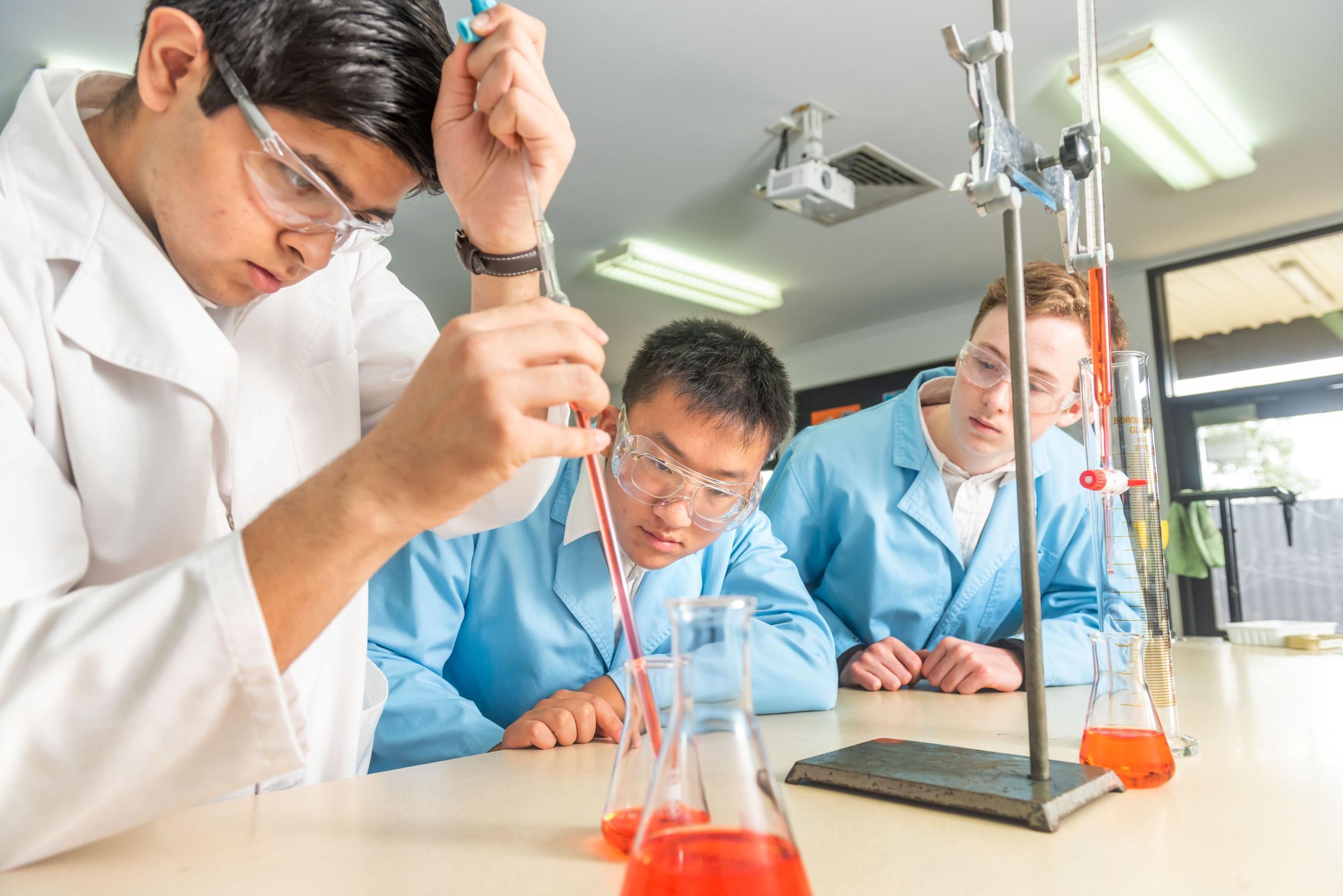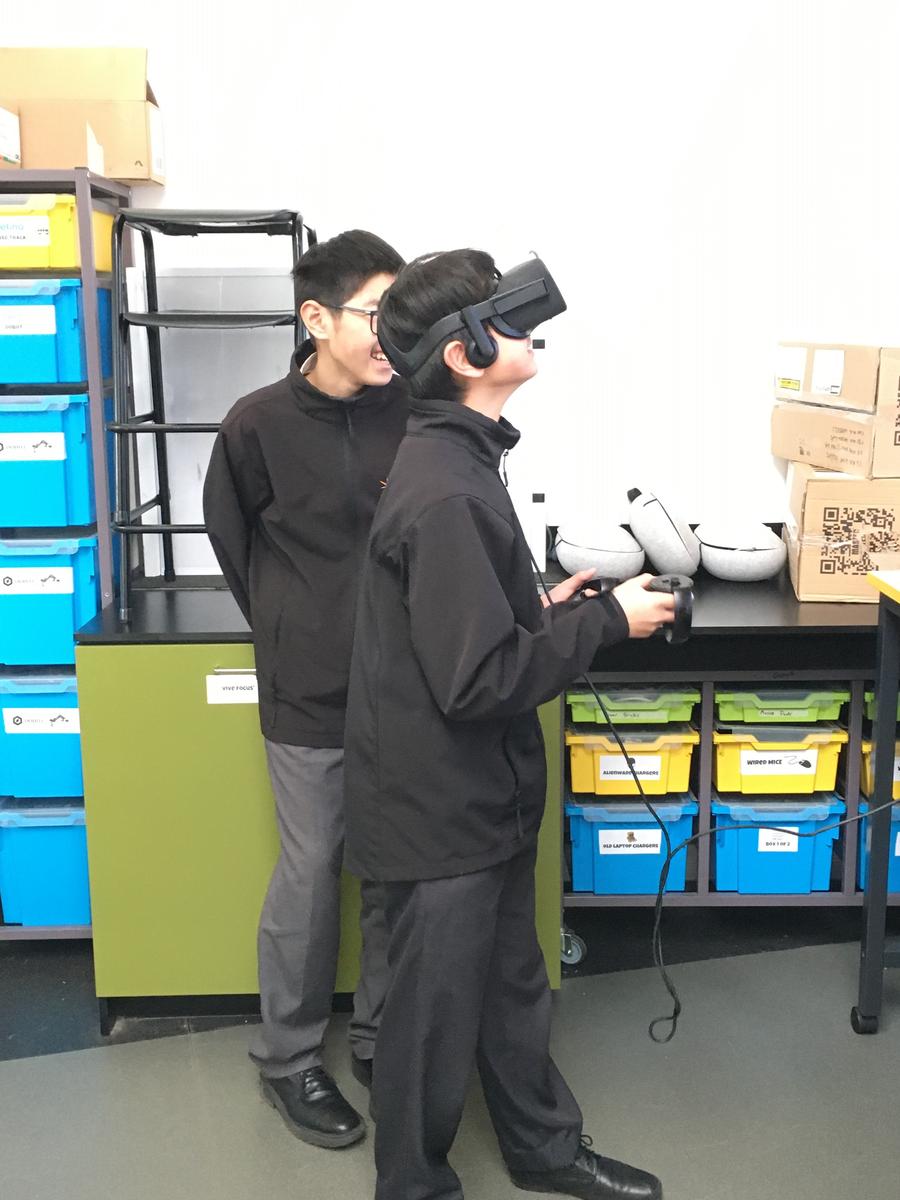Science

KIOSC - Discover: Mission to Mars
Space exploration and the willingness of humans to live on other planets is becoming a reality. Society has adopted many benefits from space research/explorations, and we will continue to benefit from discoveries made. The ability to live on Mars and function as a working society poses many challenges and obstacles.
The use of new technologies such as Virtual Reality provide a mechanism to explore the unknown and to assist in training future space explorers. Data analysis and algorithmic thinking support us in exploring new and innovative ideas of space exploration.
On Monday 19 June, Year 7 students of Scoresby Secondary College explored the surface of Mars using Oculus Rift Virtual Reality technology in their excursion to KIOSC. They experienced working in difficult conditions, making repairs to equipment in a virtual space suit. Robots are amazing tools, and being able to send a drone helicopter to Mars is an amazing human achievement. Students coded their drone to mimic a real NASA mission, replicating Ingenuity’s flights on Mars. Students were able to investigate the materials required to withstand the extreme cold on Mars (dry ice). Using STELR housing and data logging equipment, students hypothesized the best insulating materials for colonisation.
KIOSC - Water: From Local to Global
The resource of water is fundamental to our survival on Earth. This program focuses on how local/global water resources are used, analysed and how the future of water, as a resource can be managed.
Thursday 22 June saw our Year 8 students undertake a 360-degree immersive field experience in the KIOSC Igloo. This experience takes students to the Melbourne Western Treatment Plant where they learn how Melbourne recycles it water. Students followed the story of the Dandenong Creek that flows through Knox. Water samples have been collected from 3 sites along the creek and students analyse, Macro-Invertebrates, Nitrates/Nitrites, and pH to determine the health of the river after a pollution spill. Students ventured into the World Water Crisis, by studying how water in other countries is utilised. Students took samples of water and attempt to filter as best they can by purchasing items for filtration – through a role-play scenario. After their samples are cleaned, they are shown how other contaminants, such as biological organisms, can greatly affect the health of the water.
Mr Rahul Suresh-Raj
Science Leader






